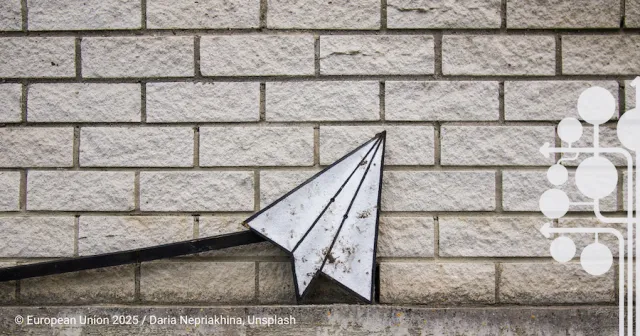Transforming Paths: New educational pathways for inmates

Across Europe, prisons are facing the challenge of not simply detaining inmates, but also preparing them for life after their release. Successful rehabilitation requires more than just serving a sentence – it needs targeted educational opportunities that strengthen the person behind the crime. This is precisely where the Erasmus+-funded Transforming Paths project comes in.
What is Transforming Paths?
Transforming Paths is an international educational project that promotes personal development and empowerment of inmates. The aim is to provide them with essential skills through targeted courses that support them both during and after their time in prison – and give them the chance to develop new perspectives for their future.
The project is jointly implemented by partners from Austria and Norway, including Katholisches Bildungswerk Kärnten (Catholic Educational Association Carinthia) and Bodø videregående skole in Norway. Through the exchange between the two countries, the participants benefit from different experiences and best practices in working with inmates.
Two intensive training weeks for trainers (LTTA weeks)
An essential part of Transforming Paths are the Learning, Teaching & Training Activities (LTTA), two weeks of training that laid the foundation for implementing the programme.
- March 2024 – Laying the foundations: In the first LTTA week, trainers from Austria and Norway came together to familiarise themselves with proven methods of adult education. A particular focus was on ‘How to create a safe learning environment’ – in other words, how to create a safe and trusting learning environment for inmates.
- Between the training weeks: In the months between March and October, the trainers from both countries continued to work on the content of the courses in regular online meetings. During these meetings, concepts were developed, revised and written down to ensure a structured and practical course.
- October 2024 – Testing and applying content: In the second LTTA week, the focus was on applying the developed content in practice. The trainers used innovative and creative methods to adapt the courses to the needs of the inmates. After this week, a feedback session was held with Norwegian inmates – and the positive feedback showed that the concept worked.
Implementing the courses in Austria and Norway
Based on the LTTA experience, the first course in Austria started in November 2024, followed by the course in Norway in February 2025. The course is divided into five thematic blocks or courses that specifically address the personal development of the inmates. Each course lasts five hours, so the entire course lasts a total of 25 hours.
A special feature of the project is the continuous adaptation of the course: after each teaching unit, the inmates provided feedback so that the content could be gradually improved and individually tailored. This flexible design proved to be particularly successful – the participants felt taken seriously and actively involved in the learning process.
However, implementation was not without challenges: planning each individual unit was time-consuming and required a great deal of sensitivity. Methods had to be designed in such a way that they were practical and understandable for the target group. But the effort paid off – both inmates and trainers reported positive experiences. Learning together created connections and allowed them to learn from each other.
Additional support: cards for inmates
In addition to the courses, the project also developed special cards. These cards are designed to help inmates deepen what they have learned – not only during their time in prison but also after their release. They contain instructions and suggestions to help them find new ways of dealing with everyday challenges.
Strong cooperation with the prisons
A key success factor of Transforming Paths is the close cooperation with the correctional facilities. Without the support and commitment of the correctional facilities in Klagenfurt and Bodø, the implementation of this innovative educational project would not have been possible.
This strong cooperation shows how important targeted educational opportunities are in the prison system. Education is not only a key to rehabilitation, but also an important factor for a second chance in life.
Looking to the future
Transforming Paths has proven that inmates benefit from educational opportunities that go beyond traditional schooling. Through creative, interactive and practical teaching methods, they can acquire new skills that help them build a stable life after their release.
The project is now in its final phase, and the initial results already show that it could have a long-term impact. The successful model could serve as a basis for further educational programmes in prisons – not only in Austria and Norway, but throughout Europe.




